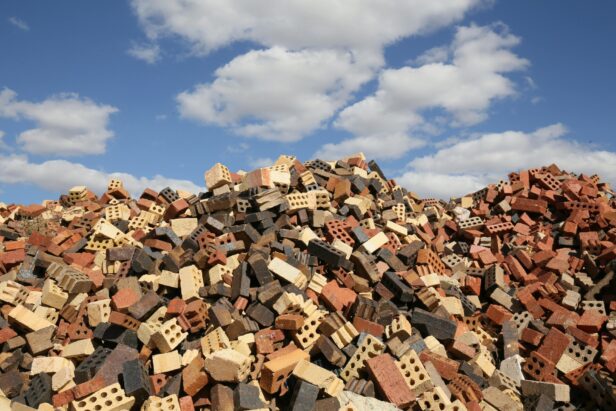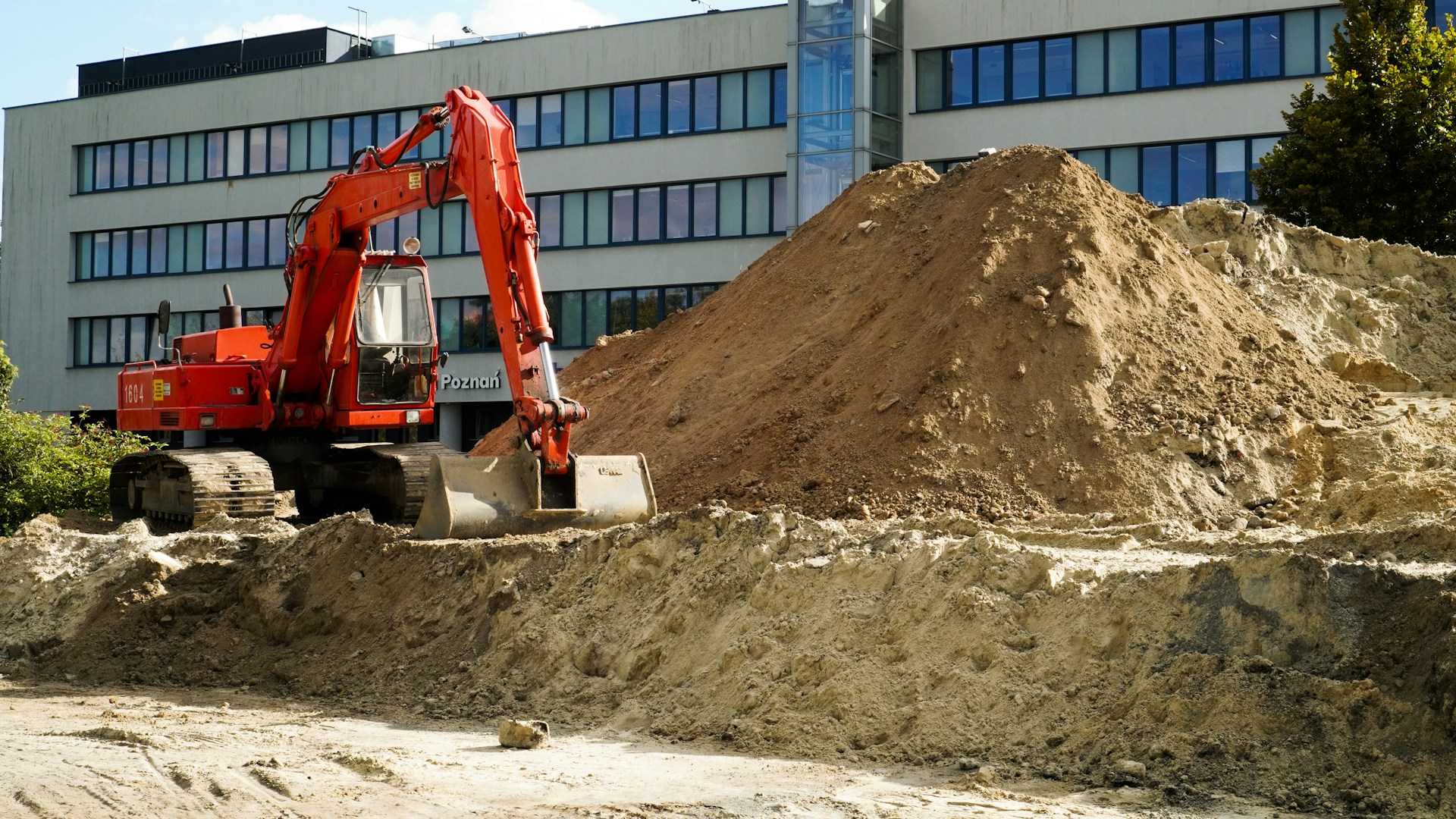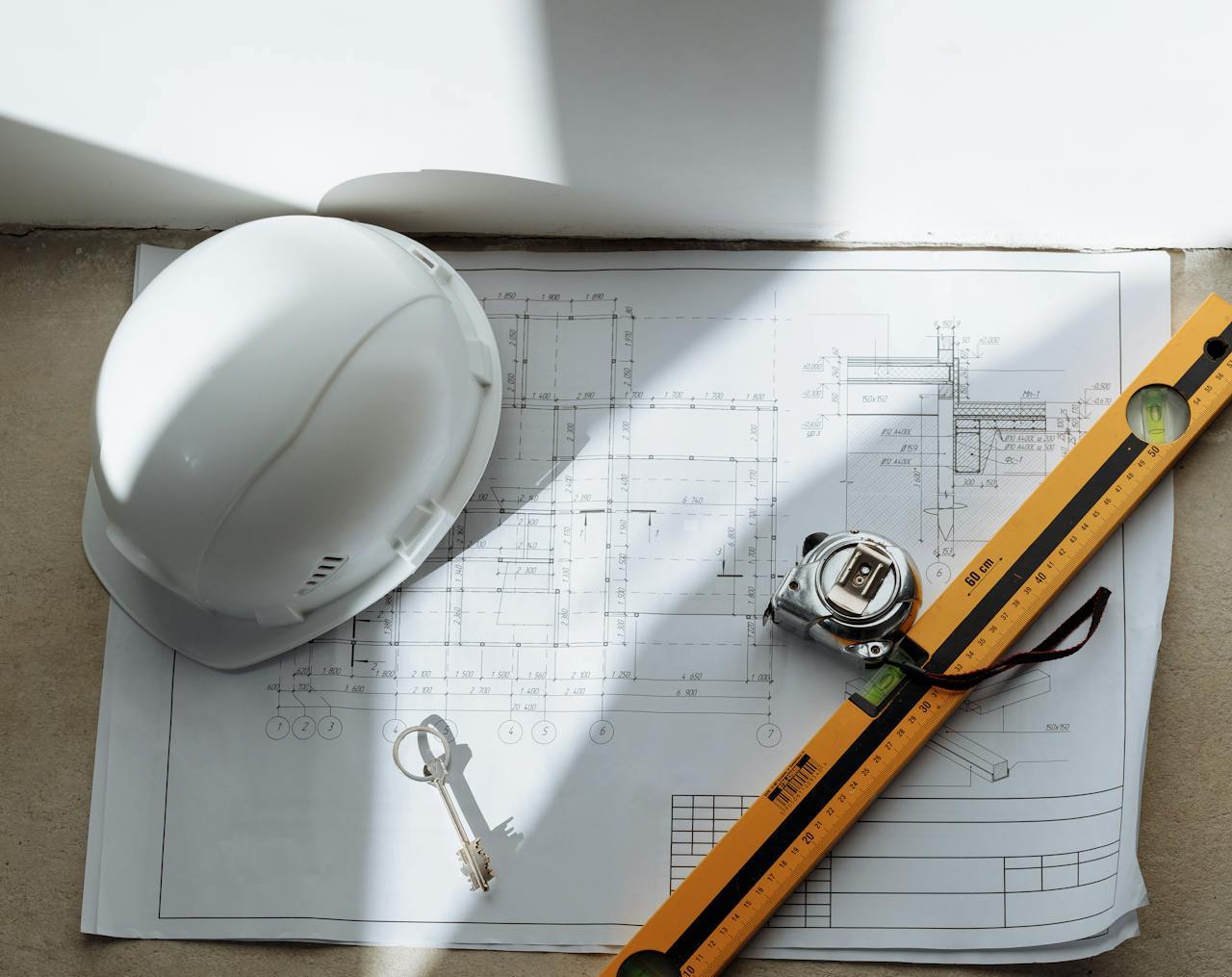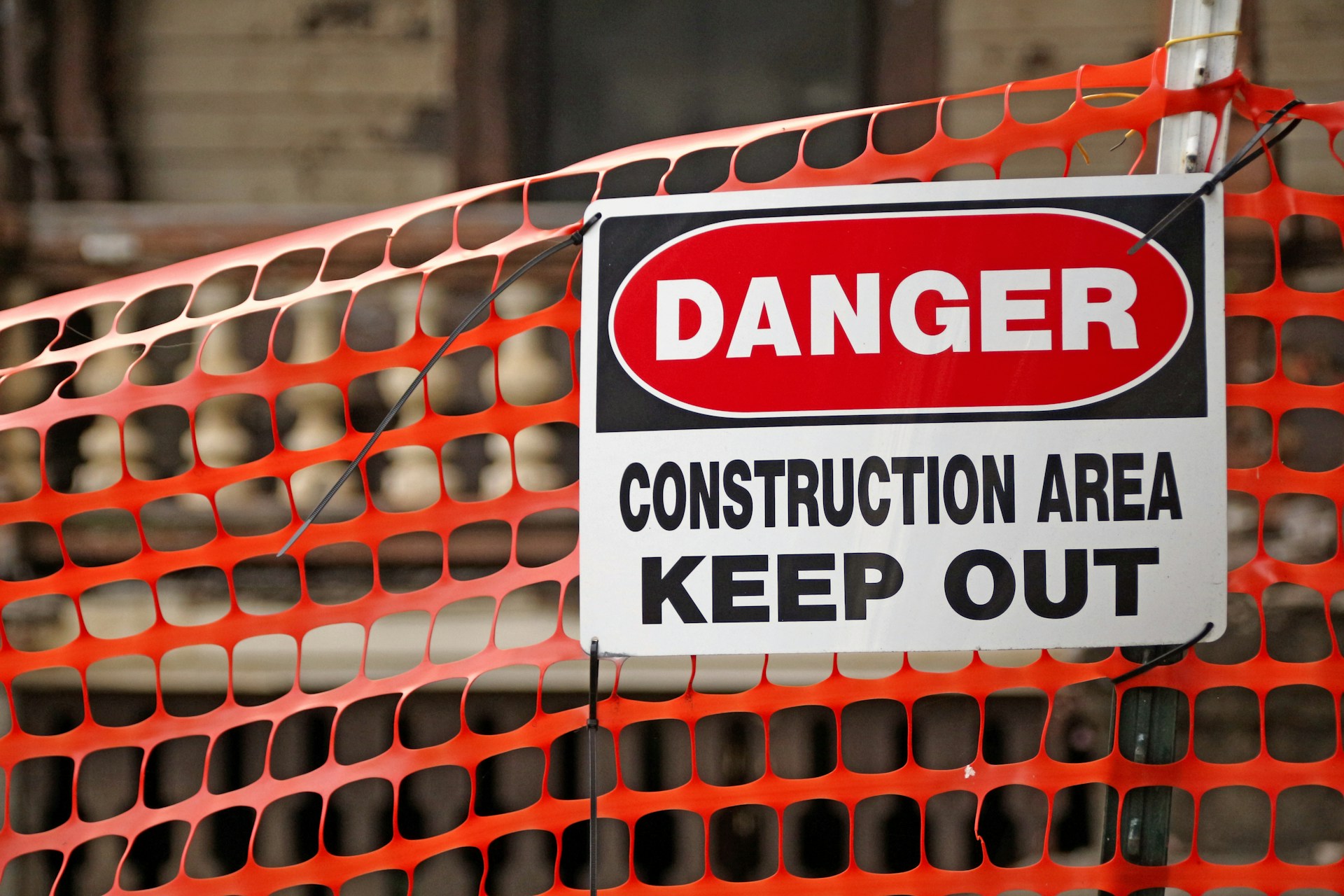Construction waste management in Dallas involves the systematic handling of materials generated from construction and demolition activities throughout the city. At EB3 Construction, we are committed to our responsibility for proper waste management on behalf of developers and property owners. The City of Dallas has implemented a comprehensive approach to construction waste, demonstrating its dedication to environmental stewardship and sustainability.
For construction projects in Dallas, contractors must adhere to strict regulatory requirements governing the handling of waste materials from generation to final disposal. This aligns with the city’s Environmental Management System, which provides a framework for systematically reducing environmental impacts through pollution prevention and continuous improvement.
A key focus of Dallas’ construction waste strategy is diverting materials from landfills through recycling and reuse. We prioritize recycling common construction materials like cardboard, wood, concrete, and scrap metal in our project waste management. The Office of Environmental Quality & Sustainability encourages contractors to incorporate recycled-content materials into new constructions where feasible, promoting a circular economy approach.
Implementing effective waste management practices on construction sites requires careful planning and execution. We collaborate closely with our clients and subcontractors to develop comprehensive waste reduction strategies tailored to each project’s unique needs. This often involves conducting pre-construction waste audits, establishing clear diversion targets, and training all site personnel on proper material sorting and handling procedures.
By embracing best management practices for construction waste, we not only ensure regulatory compliance but also drive operational efficiencies and cost savings for our clients. As Dallas continues to grow and develop, responsible waste management will play an increasingly vital role in building a sustainable future for the city.
What Are the Regulatory Requirements for Construction Waste in Dallas?
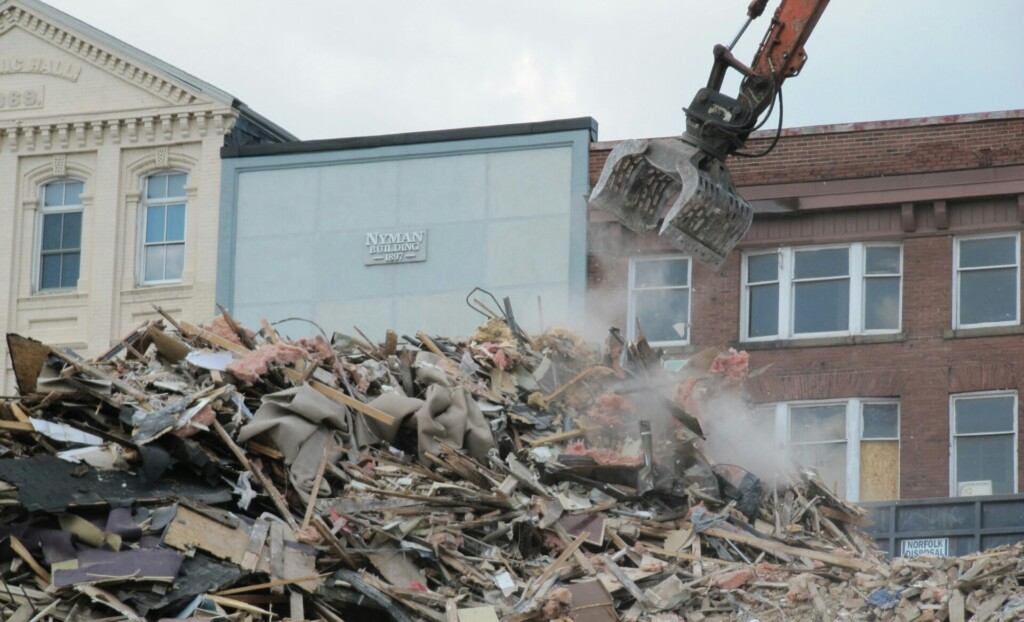
Construction contractors in Dallas must manage a complex array of federal, state, and local regulations concerning waste management. The City of Dallas requires contractors to secure all necessary approvals and permits for site activities and maintain thorough documentation of compliance with these regulations. This is not merely bureaucratic red tape—as non-compliance can result in severe civil or criminal penalties.
A primary responsibility for contractors is the proper classification of site-generated waste. They must determine whether materials are hazardous or fall into another category of regulated solid waste. This classification determines the handling, storage, transport, and disposal requirements.
For hazardous waste, contractors face stringent requirements, including:
- Developing and maintaining emergency response plans
- Providing proper training to staff handling hazardous materials
- Using appropriate containers and following strict container management practices
- Employing qualified companies for waste transport
- Properly manifesting all hazardous waste shipments
- Filing annual waste summaries with the Texas Commission on Environmental Quality (TCEQ)
- Ensuring disposal occurs only at authorized hazardous waste facilities
Even for non-hazardous construction waste, contractors must follow specific disposal protocols. The City of Dallas operates the McCommas Bluff Landfill as its primary disposal facility. However, the landfill only accepts certain types of waste and has strict acceptance policies. Notably, for construction contractors, all soils destined for McCommas Bluff must be tested to confirm compliance with the facility’s acceptance criteria before disposal.
Effectively handling these multi-layered regulations requires diligence and expertise. At EB3 Construction, we work closely with our clients to ensure full compliance while maximizing efficiency in waste management practices. Our team stays informed on the latest regulatory changes, including amendments to Dallas City Code Chapter 18, which governs Municipal Solid Wastes, to offer comprehensive waste management solutions tailored to each project’s unique needs.
By prioritizing proper waste classification, implementing robust management systems, and working with certified disposal facilities, construction contractors can avoid costly penalties while demonstrating environmental stewardship. This proactive approach not only ensures regulatory compliance but can also lead to more efficient project execution and potential cost savings through proper waste segregation and recycling initiatives.
What Are the Best Practices for On-Site Construction Waste Management?
Effective on-site waste management is crucial for minimizing environmental impact and maximizing resource efficiency on construction projects. By implementing proper storage, sorting, and handling practices, we can significantly reduce waste and enhance project sustainability. Here are some key practices we employ:
Proper Waste Storage
We store waste materials carefully to limit exposure to the elements. This involves keeping drums sealed when not in use and storing bins and containers under cover. For hazardous materials and hydrocarbons, we use secondary containment systems to prevent spills or leaks. These measures not only protect the environment but also maintain the integrity of materials for potential reuse or recycling.
Efficient Material Sorting
To maximize recycling, we implement comprehensive sorting systems on our sites. This involves designating specific areas for materials such as concrete, wood, metal, and cardboard. We thoroughly train workers on proper sorting procedures to ensure high-quality separation. By segregating materials at the source, we increase recycling rates and reduce contamination.
Material Protection and Damage Prevention
An often overlooked aspect of waste reduction is ensuring proper material storage and handling to minimize damage. We protect stockpiles from wind and rain using secured plastic sheeting or temporary roofing. For earthwork, we schedule activities during dry weather whenever possible. These precautions help preserve materials in a usable condition, reducing waste.
Spill Prevention and Cleanup
Quick response to spills is essential for preventing contamination. We maintain covered dumpsters and immediately clean up any leaks, drips, or spills. This proactive approach stops contaminated soil or residue from entering storm drains and potentially harming local water systems. Our crews are trained to swiftly contain and properly dispose of accidental releases.
By diligently adhering to these practices, we minimize waste generation, maximize material reuse and recycling, and protect the environment throughout the construction process. Proper on-site waste management is beneficial for the planet and can also improve project efficiency and lead to significant cost savings over time.
How Can Construction Companies Benefit from Recycling Programs in Dallas?

Construction companies in Dallas can gain significant advantages by implementing strong recycling programs. Economically, recycling construction waste results in considerable cost savings through reduced disposal fees. This is particularly important in Dallas, where debris from construction sites is not collected by city sanitation services as part of regular trash pickup.
Concrete recycling exemplifies the financial benefits. By crushing and reusing existing concrete as aggregate in new projects, companies can cut material costs and reduce their demand for virgin resources. This practice not only saves money but also aligns with sustainable construction principles.
Metal recycling is another opportunity for economic gain. Many construction firms find they can generate revenue by selling scrap metal to recyclers, effectively offsetting some of their waste management expenses. Local facilities like Texas Recycling and Okon Recycling offer specialized services for a wide range of construction materials, including concrete, masonry, wood, metals, and drywall, making it convenient for Dallas builders to recycle responsibly.
Beyond immediate financial impact, strong recycling practices can enhance a company’s reputation and competitive edge. As sustainability becomes increasingly important in the construction industry, many clients now consider waste diversion rates and environmental responsibility as criteria in their bid evaluation processes. Construction firms with robust recycling programs often find themselves better positioned to secure contracts, especially for projects with green building certifications or public sector work.
The benefits of recycling extend to on-site operations as well. A well-organized waste management system greatly improves site safety. By reducing clutter and designating specific areas for material sorting and storage, companies can minimize the risk of accidents and injuries. This enhanced safety environment not only protects workers but also reduces the potential for costly work stoppages and liability issues.
Additionally, a clean and organized site boosts worker productivity. When materials and work areas are easily accessible and not obstructed by waste, workers can perform their tasks more efficiently. This improved workflow can potentially reduce project timelines and labor costs, further contributing to the overall economic benefits of recycling programs.
At EB3 Construction, we have seen firsthand how comprehensive recycling initiatives can transform project economics and operations. By partnering with local recycling facilities and developing strategic waste management plans, construction companies in Dallas can turn their waste streams into valuable resources, improving their bottom line while contributing to a more sustainable built environment.
What Resources and Support Are Available for Construction Waste Management in Dallas?
At EB3 Construction, we recognize the importance of proper construction waste management. Dallas offers numerous resources to support these efforts, which we leverage to ensure responsible practices on our job sites. The Office of Environmental Quality & Sustainability (OEQS) provides valuable education and training on environmental requirements and responsibilities. We’ve found their construction-specific training through the Stormwater Management Division particularly helpful for our project managers.
For team members looking to expand their knowledge, we encourage reaching out to OEQS at 214-670-1200 for training schedules. We also direct our staff and subcontractors to www.WhereDoesItGo.com as a quick reference for proper material disposal. When it comes to waste disposal, we utilize a mix of city-operated and private facilities to optimize our recycling and disposal processes.
City-Operated Disposal Options
The Department of Sanitation Services operates several facilities that we use regularly:
- McCommas Bluff Landfill
- Northeast (Fair Oaks) Transfer Station
- Northwest (Bachman) Transfer Station
- Southwest (Oak Cliff) Transfer Station
These locations provide convenient options throughout the city, allowing us to minimize transportation costs and emissions.
Private Recycling Facilities
For specialized construction waste recycling, we partner with private facilities that have expertise in handling specific materials. Two key partners we work with are:
- Texas Recycling (214-357-0262)
- Okon Recycling (214-426-6566)
These facilities help us maximize our recycling efforts, particularly for materials like metals, cardboard, and certain plastics that are common on construction sites.
Additional Environmental Resources
When we encounter more complex environmental considerations, we turn to specialized city resources. The Environmental Due Diligence Division (214-671-8967) has been invaluable for questions about soil and special waste disposal, Municipal Setting Designations, and guidance on suspected asbestos-containing materials.
We also regularly consult resources from the North Central Texas Council of Governments (NCTCOG). Their construction standards and the iSWM (integrated Stormwater Management) guide provide best practices for environmental management during construction. These resources help us stay current with regional expectations and innovative approaches to minimizing environmental impact.
By leveraging these diverse resources, we at EB3 Construction ensure that our waste management practices not only meet regulatory requirements but also contribute to the sustainability goals of our projects and the broader Dallas community. We continuously educate our team on these resources to maintain our commitment to responsible construction practices.
Conclusion: Building a Sustainable Future Through Effective Waste Management

Managing construction waste and recycling in Dallas requires a steadfast commitment to environmental stewardship, regulatory compliance, and sustainable practices. We recognize that implementing proper waste management protocols is more than just meeting legal requirements—it’s an opportunity to reduce costs, enhance site safety, and strengthen our reputation as responsible builders.
The City of Dallas provides substantial resources and support through its various departments to assist construction companies like ours in adopting more sustainable practices. Additionally, specialized private recycling facilities offer tailored services for processing and repurposing construction materials. As environmental regulations continue to evolve and become more stringent, we understand that viewing waste management as an opportunity rather than a burden gives us a competitive edge. By adopting a collaborative approach—working closely with the city, recycling partners, and other stakeholders—we can guide Dallas towards a more sustainable future while significantly reducing the environmental impact of our construction activities.
To learn more about how we’re building sustainability into every project, contact EB3 Construction today.

